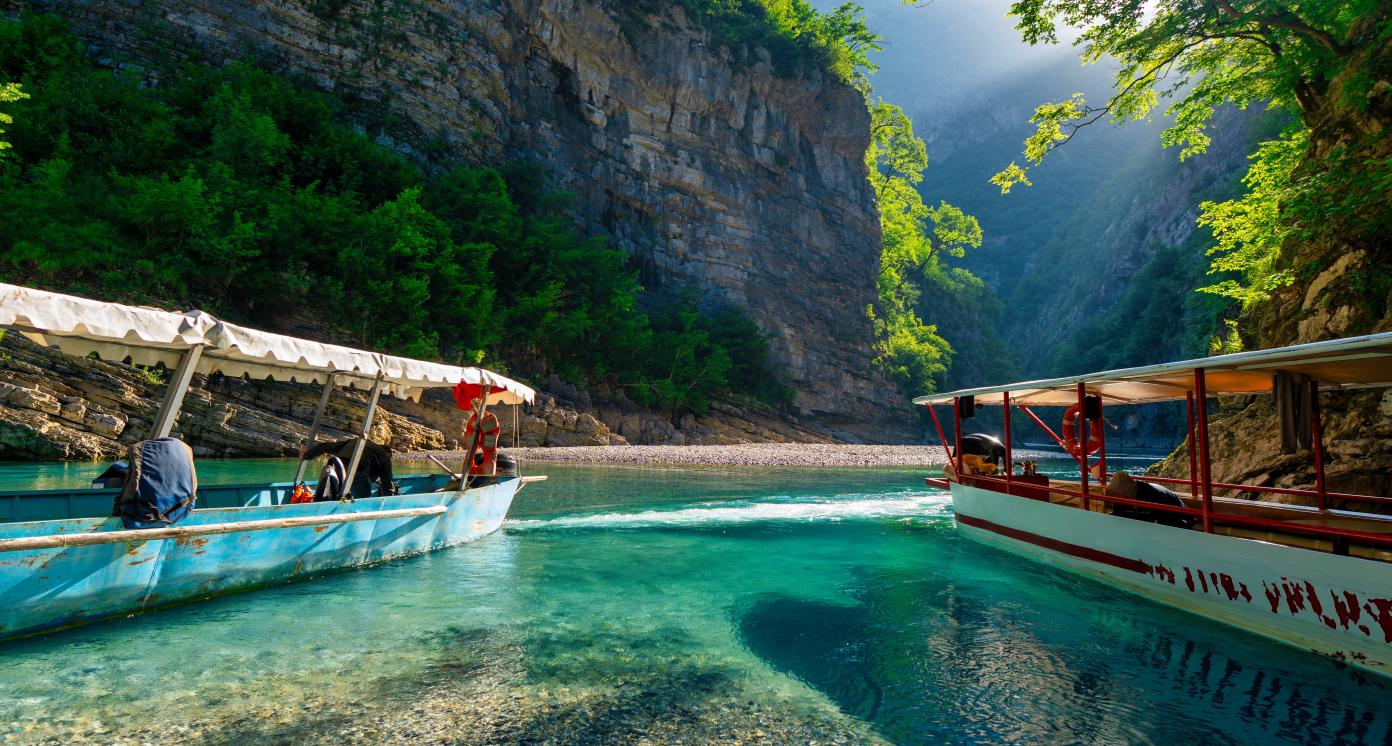Ecotourism Including Blue & Cultural Tourism
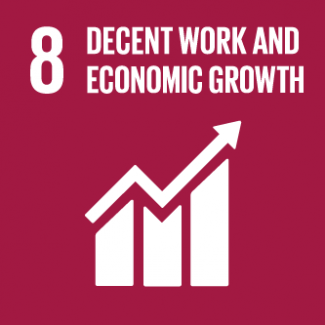
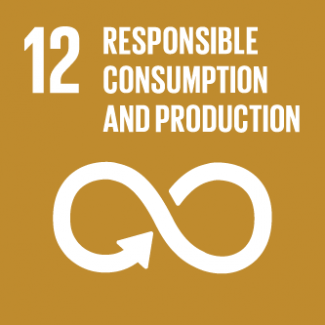
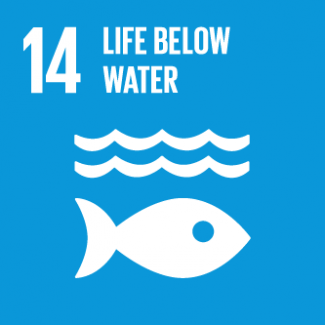
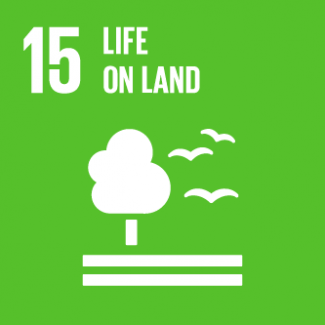
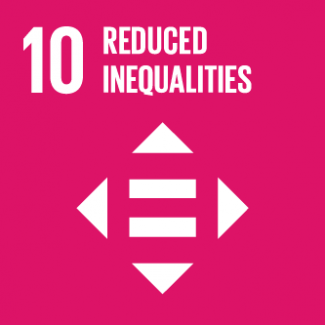
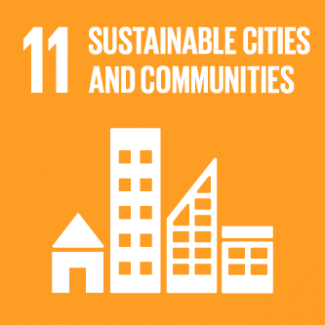
Business Model Description
Establish and operate a tourism businesses with a strong focus on sustainable practices, blue tourism activities, and the promotion of the country's rich cultural heritage, encompassing eco-friendly accommodations and aquatic sports enhancements, collaborating with local and international organizations to strengthen the preservation and development of tourism initiatives.
Expected Impact
Safeguard national heritage and improves visitor experience, thereby generating higher tourism yield and repeated guest rates while enhancing employments for the locals.
How is this information gathered?
Investment opportunities with potential to contribute to sustainable development are based on country-level SDG Investor Maps.
Disclaimer
UNDP, the Private Finance for the SDGs, and their affiliates (collectively “UNDP”) do not seek or solicit investment for programmes, projects, or opportunities described on this site (collectively “Programmes”) or any other Programmes, and nothing on this page should constitute a solicitation for investment. The actors listed on this site are not partners of UNDP, and their inclusion should not be construed as an endorsement or recommendation by UNDP for any relationship or investment.
The descriptions on this page are provided for informational purposes only. Only companies and enterprises that appear under the case study tab have been validated and vetted through UNDP programmes such as the Growth Stage Impact Ventures (GSIV), Business Call to Action (BCtA), or through other UN agencies. Even then, under no circumstances should their appearance on this website be construed as an endorsement for any relationship or investment. UNDP assumes no liability for investment losses directly or indirectly resulting from recommendations made, implied, or inferred by its research. Likewise, UNDP assumes no claim to investment gains directly or indirectly resulting from trading profits, investment management, or advisory fees obtained by following investment recommendations made, implied, or inferred by its research.
Investment involves risk, and all investments should be made with the supervision of a professional investment manager or advisor. The materials on the website are not an offer to sell or a solicitation of an offer to buy any investment, security, or commodity, nor shall any security be offered or sold to any person, in any jurisdiction in which such offer would be unlawful under the securities laws of such jurisdiction.
Country & Regions
- Albania: Vlorë
- Albania: Durrës
- Albania: Berat
- Albania: Shkodër
- Albania: Kukës
Sector Classification
Services
Development Need
In 2021, Albania's services sector experienced remarkable growth, comprising 86% of the country's businesses, employing 64% of the workforce, and contributing 65.1% to the total turnover. However, this contribution falls short of the OECD average, where services typically account for around 70% of GDP. To fully harness the economic and social potential of the sector, it is crucial to prioritize innovative measures aimed at enhancing productivity (11, 12, 13, 14).
Policy priority
As per the National Strategy for Development and European Integration 2022-2030, Albania is committed to enhancing its service sector through comprehensive infrastructure improvements in transport, electricity, water supply, and waste management. Additionally it targets an 8.4% reduction in final energy consumption, with a projected 195.2 ktoe by 2030 in the services sector (3, 15).
Gender inequalities and marginalization issues
21.6% of women are employed in the services sector, however a significant portion of women refrain from entering the workforce due to domestic responsibilities (18%) or academic commitments (22.3%), highlighting the enduring impact of societal gender expectations (10).
Investment opportunities introduction
The Albanian government prioritizes attracting foreign direct investments, particularly in the services sector, notably tourism. Albania's service exports, mainly tourism-driven, have surged fivefold, outpacing EU-11 and WB-5 economies (17, 18).
Key bottlenecks introduction
Albania's services sector faces several significant challenges, including issues related to poor education quality resulting in skill gaps, infrastructure deficiencies in electricity and transportation, limited access to finance for small and medium-sized enterprises (SMEs), and regulatory barriers identified by the OECD Services Trade Restrictiveness Index, encompassing restrictions on foreign entry and obstacles to healthy competition (14).
Hospitality and Recreation
Development need
Despite facing challenges such as earthquakes and the impact of COVID-19, Albania's tourism sector received a substantial USD 210 million investment in 2021 (7.5% of total investments). Rich history and culture offer untapped potential, but infrastructural issues persist. There's potential for tourism's GDP contribution to reach 9.3% by 2028, yet blue and cultural tourism are underexplored (1, 3, 4, 6, 7).
Policy priority
Under the 2021-2025 Government Program, tourism is defined as a growth driver in all its forms, encompassing marine and mountain development, including agrotourism. Albania aims to transform the sector into a significant contributor, comprising 24% of total output at USD 5,5 billion by 2030 and by 2028 tourism investments are expected to rise to 8.2%. Furthermore, strengthening rural tourism and in particular the agrotourism value chain is a priority (2, 3, 4).
Gender inequalities and marginalization issues
In Albania's tourism sector, women often occupy informal and low-skilled roles, curtailing their progression. While female entrepreneurship is emerging in tourism, the absence of comprehensive data hinders policy development. Women grapple with limited access to market data, legal backing, as well as negative cultural norms hindering their participation (8, 9).
Investment opportunities introduction
Albania aims to attract 10 million tourists by 2030. In 2021, tourism contributed to 17.4% of the GDP and employed 7.7% of the workforce, with projections indicating this figure will rise to 8.8% by 2028. Tax incentives, including a 10-year property tax exemption for premier hotel brands and a 6% VAT for five-star hotels/resorts and agro-tourism facilities, are positioned to attract investors (3, 4, 16).
Key bottlenecks introduction
Albania's tourism sector faces significant challenges, including inadequate accommodations, the absence of international hotel brands, limited tourist infrastructure, a short tourist season, informality, ownership issues, insufficient investment, lack of sustainable tourism practices, and restricted local community involvement and training (4, 5).
Hotels and Lodging
Pipeline Opportunity
Ecotourism Including Blue & Cultural Tourism
Establish and operate a tourism businesses with a strong focus on sustainable practices, blue tourism activities, and the promotion of the country's rich cultural heritage, encompassing eco-friendly accommodations and aquatic sports enhancements, collaborating with local and international organizations to strengthen the preservation and development of tourism initiatives.
Business Case
Market Size and Environment
< USD 50 million
< 5%
1,632 registered hotels as of 2021.
During 2021, international tourists spent approximately USD 2.553 billion (ALL 255.3 billion), which constituted 43.6% of the country's total exports. Meanwhile, domestic visitors contributed around USD 621 million (ALL 62.1 billion).(18) Moreover during the summer of 2022, the country received 6.8 million visitors, with projected earnings of more than USD 3.3 billion (7).
According to an international development cooperation agency engaged in activities in Albania, the market size of the cultural and blue tourism sector in Albania is reported to be less than 50 million USD (24).
The direct contribution of Travel & Tourism to GDP is expected to grow by 4.03% pa. By 2029, the projection is set to reach 3.221 billion USD (320.09 billion ALL), accounting for 9.4% of the GDP (18).
As of 2021, the number of officially registered hotels reached 1,632, marking a 70% increase since 2010. Hotel capacities have also grown significantly, with the average number of rooms per hotel rising from 10-15 in the early 2010s to 25-30 by 2020. The overall bed capacity has almost tripled in this period, reflecting enhancements in hotel facilities over the decade (1).
The hospitality sector saw growth in 2021 with the establishment of 1,457 accommodation structures. Furthermore, there was a twofold increase in the number of nights tourists spent in these accommodations compared to 2020. On average, stays in such accommodations rose by 7.2% in comparison to the previous year. (18)
Indicative Return
< 5%
< 5%
Ecotourism investments can produce returns up to 5% measured in terms of profit, IRR and ROI, according to a key development partner providing project financing to tourism projects (24).
Investment Timeframe
Short Term (0–5 years)
According to a key development partner providing project financing to tourism projects, the estimated payback period for investments in tourism in Albania, aimed at generating returns, is less than 5 years (24).
Ticket Size
< USD 500,000
Market Risks & Scale Obstacles
Capital - Requires Subsidy
Market - Highly Regulated
Capital - Limited Investor Interest
Impact Case
Sustainable Development Need
Albania's tourism sector grapples with challenges related to standards, service quality, and sustainable tourism development, including problems of insufficient infrastructure, seasonal workforce migration, and a shortage of qualified personnel. Additionally, waste management problems, particularly in coastal regions, result in water resource pollution, adversely affecting diving and bathing sites, thereby hindering the expansion of blue tourism (3, 13, 30, 34).
Limited diversity in tourism offers, primarily focused on coastal attractions, restricts potential growth in overnight stays and spending, and hinders balanced territorial distribution. The sector also faces lack of qualified personnel where skills building is reliant on on-the-job training further exacerbated by outmigration (3, 7).
Albania seeks to boost macroeconomic resilience through tourism diversification, shifting from beach destinations to new attractions to infrastructure issues, spread tourism benefits, and attract a broader international audience. However, despite abundant heritage, blue and cultural tourism sectors remain underdeveloped further constrained by challenges related to digital payment systems and infrastructure (13, 4, 29).
Gender & Marginalisation
Tourism, as a service-oriented industry, offers a wide range of professional opportunities for women, from low to high-skilled professions, yet, women often undertake managerial roles, while ownership and decision-making is often held by male counterparts (6).
Women are mainly concentrated in informal sectors like agriculture, tourism, and textiles, where labor protections and formal data gathering are limited, excluding women from social protection measures (33).
While the National Sustainable Tourism Strategy 2019–2023 sets the direction for Albania's tourism and eco-tourism growth, it fails to recognize the substantial contributions of women in the tourism sector and the potential benefits of promoting their active participation in the industry (33).
Expected Development Outcome
Investments in ecotourism establishments will lead to improved standards, services and infrastructure revitalizing business and tourism growth, while efficient waste management especially in coastal areas will prevent pollution enhancing blue tourism opportunities (7).
Diversified tourism offerings, through the development of ecological and cultural tourism and associated infrastructure, will promote longer stays, increase tourist spending, and ensure a balanced territorial distribution.
Developing niche tourism offerings through investments in ecotourism and the associated skills will help reduce reliance on on-the-job training and tap into a more skilful workforce, whilst reducing out-migration through enhanced livelihood opportunities across various geographies.
Gender & Marginalisation
Ecotourism investments that mainstream gender equality can lead to enhanced tourism growth in Albania, tapping into the significant potential of women's contributions and ensuring a more inclusive development.
Shifting away from the traditional sun and sea model through eco-tourism activities will help develop regions beyond the coast tapping into the diverse landscape of the country including mountains, forests, and lakes, namely in the northern hinterland (46).
Primary SDGs addressed

8.9.1 Tourism direct GDP as a proportion of total GDP and in growth rate
In 2021, tourism drove 17.4% of GDP. (3) The direct contribution of Travel & Tourism to GDP is expected to grow by 4.03% per year (18).
The National Strategy for Sustainable Tourism Development anticipates that by 2028, the tourism sector, with its growing contribution, could constitute up to 9.3% of the GDP (4).

12.2.2 Domestic material consumption
In 2019, the domestic material consumption in Albania amounted to 31.6 million tonnes, which included approximately 1.436 million tonnes of fossil fuels (35).
N/A

14.1.1 (a) Index of coastal eutrophication; and (b) plastic debris density
14.5.1 Coverage of protected areas in relation to marine areas
Beach litter per square kilometre measured at 1284796.5739 in 2018 (35).
Average proportion of Marine Key Biodiversity Areas (KBAs) covered by protected areas, 67.3% in 2022 (35).
N/A
N/A
Secondary SDGs addressed



Directly impacted stakeholders
People
Gender inequality and/or marginalization
Planet
Corporates
Public sector
Indirectly impacted stakeholders
People
Gender inequality and/or marginalization
Planet
Corporates
Public sector
Outcome Risks
Under the Business As Usual (BAU) forecast up to 2050, the growth of the tourism sector is predicted to increase energy consumption by 154%, elevate greenhouse gas emissions by 131%, amplify water usage by 152%, and boost solid waste production by a staggering 251% (31).
Tourist destinations often face multiple environmental challenges, including air and noise pollution, waste generation, sewage issues, and increased car usage. Overcrowded and poorly managed tourism can lead to the depletion of natural resources, decreased service quality, and a significant rise in waste and pollution (32).
Excessive tourism can lead to detrimental environmental impacts like soil degradation, excessive resource use, and amplified waste. It poses risks to biodiversity, disrupts socio-cultural ecosystems, and threatens the untouched beauty of terrestrial and aquatic environments (32).
Gender inequality and/or marginalization risk: Tourism development may commodify local cultures and lead to displacement, particularly affecting indigenous populations. Over tourism can elevate living costs, limit economic prospects, and misuse public areas, deteriorating residents' quality of life, with women and marginalized groups being most vulnerable (26).
Impact Risks
Albanian tourist destinations encounter infrastructure challenges, including connectivity and parking shortages. The underutilization of digital technology and a lack of structured management and public-private cooperation hinder market exploration and service innovation in the tourism sector (3, 4, 28).
There's a significant risk associated with the lack of standardization in the classification system for tourism services; without it, service quality and reliability may be compromised, potentially diminishing tourist satisfaction and trust (30).
Albania's tourism sector faces risks due to inadequate data collection and analysis that falls short of EU standards, hampering strategic planning and intended impact. Lack of a coordinated regional destination-marketing network restricts access to essential information for prospective tourists (13).
Gender inequality and/or marginalization risk: The tourism sector faces gender disparities, with a significant number of women employed in informal, low-skilled roles, limiting the positive of sustainable investments for informal workers and women (8).
Impact Classification
What
Investments in sustainable blue and eco-tourism will broaden offerings across different regions of Albania, foster sustainability, enhance contribution to GDP and promote responsible practices benefiting both tourists and the planet.
Who
Local businesses and communities benefit from enhanced activity, while the biodiversity and cultural heritage of the country are preserved, and tourists enjoy diverse array of offerings.
Risk
Underinvestment, infrastructure challenges, lack of standardization, data limitations, and gender disparities pose risks in Albania's eco-tourism sector, potentially impacting growth and sustainability.
Contribution
Diversifying and developing the tourism sector in Albania enhances resilience and appeals to a broader international audience, fostering sustainable growth.
How Much
By 2021, the total count of officially registered hotels had surged by 70% since 2010, reaching 1,632. In the same year, international tourists contributed significantly to the country's economy, spending around USD 2.574 billion (1, 18).
Impact Thesis
Safeguard national heritage and improves visitor experience, thereby generating higher tourism yield and repeated guest rates while enhancing employments for the locals.
Enabling Environment
Policy Environment
National Strategy for Development and European Integration 2022-2030: sets the goal of attracting 10 million tourists by 2030, intending to make tourism a key driver of sustainable economic development, accounting for around 24% of total gross output, equivalent to USD 5.5 billion, including through the establishment of ecotourism packages (3).
The National Strategy for Sustainable Tourism Development 2019-2023: envisions Albania as a prominent global tourism destination, with a strategic focus on various subsectors, including coastal, maritime, mountain tourism, ecotourism, and cultural tourism. By 2028, it aims for significant growth in employment (8.8%) and investments (8.2%) within the tourism sector (4).
The 2021-2025 Government plan for Albania is centered around modernizing the productive economy, tourism, energy, agriculture, digital economy, transport, and services. The objective is to position Albania as the top choice for tourists in the region and a significant European destination by combining beach tourism, sea and sailing experiences, mountain and nature ecotourism, agritourism, cultural heritage, and a rich culinary tradition (2).
Financial Environment
Financial incentives: The government promotes investment in tourist resorts by providing state-owned land under the "Albania 1 Euro scheme" for a tenure of 99 years to prospective investors (18).
Fiscal incentives: 4-5 star accommodations with internationally recognized trademarks receive a 10-year corporate tax break, starting within 3 years of achieving special status. Services in Five star hotels/resorts with this status benefit from a 6% VAT reduction. Infrastructure impact tax exemptions apply to new Five star constructions and investments in cultural sites with protective status (18).
Other Incentives: In 2018, Albania's Ministry of Culture launched a USD 213,260 project focusing on community-based inventories of intangible cultural heritage. The EU and the United Nations Office for Project Services joined forces on the USD 40 million EU4Culture initiative to restore 20 cultural venues impacted by the 2019 earthquake and improve tourism amenities. Furthermore, under the EU-funded DestiMED Plus project, Albanian Trip devised a specific ecotourism itinerary (41, 42, 48).
Regulatory Environment
Law no. 93/2015 on Tourism, 2015: aims to promote Albania as an attractive tourism destination, encompassing support for the development of a sustainable tourism sector and the assurance that service providers effectively meet the needs of tourists, and establishes rules pertaining to financial support for investors, criteria for the operation of tourism-related activities, and other essential guidelines (38).
Law no. 55/2015 on Strategic Investments, 2016: aims to increase Albanian and foreign strategic investments in the sectors of the economy considered as strategic sectors, through the establishment of special favourable administrative procedures, mitigating support services to the investors (39).
Law no. 43/2020, on Maritime Tourism Activities, 2020: aims to regulate maritime tourism in Albania and defines rules, conditions, and criteria for vessels used for tourism and entertainment, along with necessary infrastructure applying to both local and foreign individuals (40).
Law No. 125/2013 on Concessions and Public Private Partnership, 2013: establishes a framework to boost investments via public-private collaborations covering sectors like transport, energy, waste management, telecommunications, education and notably tourism, leisure, and hospitality sector to attract investments (43, 44).
Marketplace Participants
Private Sector
Saranda Diving Center, Meliá Dürres, Harmonia Hotels Group, Best Western Premier Ark Hotel, Ecotour Albania, Albanian Trip, The Adriatik Hotel.
Government
Ministry of Tourism and Environment, Ministry of Culture, State Agency for Strategic Programming and Aid Coordination, Ministry of Economy, Culture, and Innovation, Ministry of Infrastructure and Energy, Albanian Investment Development Agency, Albania Investment Council.
Multilaterals
European Bank for Reconstruction and Development (EBRD), European Union, United Nations Development Programme (UNDP), UN Women, European Investment Bank, World Bank Group, United Nations Educational, Scientific and Cultural Organization (UNESCO).
Non-Profit
Foreign Investors Association of Albania (FIAA), The Visit Gjirokastra Association (VGA), Risi Albania, Albanian Tourism Association (ATA), Albanian Tourism Union, Albanian Tour Operators Association.
Public-Private Partnership
Albanian Adventure Resort, represents a pioneering endeavour in the adventure tourism sector and operates under a public-private partnership (PPP) between the Albanian Rafting Federation and the Ministry of Education and Sports (19).
Target Locations
Albania: Vlorë
Albania: Durrës
Albania: Berat
Albania: Shkodër
Albania: Kukës
References
- (1) UNDP. 2022. Tourism and Hospitality in Albania 2022. https://www.undp.org/sites/g/files/zskgke326/files/2022-12/HOSPITALITY%20AND%20TOURISM%20IN%20ALBANIA_FINAL.pdf
- (2) Republic of Albania Council of Ministers. 2021. 2021 - 2025 Government Program. https://kryeministria.al/wp-content/uploads/2021/10/Government-Program-2021-2025.pdf
- (3) State Agency for Strategic Programming and Aid Coordination (SASPAC). 2023. National Strategy for Development and European Integration (NSDEI) 2022-2030. Available Upon Request.
- (4) National Strategy for Sustainable Tourism Development 2019 - 2023. 2019. https://turizmi.gov.al/wp-content/uploads/2019/12/National-Tourism-Strategy-2019-2023-EN.pdf
- (5) Pojani, E., & Grabova, P. 2022. Discussing Sustainable Business Practices – The Case of Tourism Sector in Albania. 80th International Scientific Conference on Economic and Social Development https://www.researchgate.net/profile/Venelin-Terziev/publication/360112360_Spiritual_leaders_of_the_Bulgarian_nation/links/6262c0c9ee24725b3ebde76d/Spiritual-leaders-of-the-Bulgarian-nation.pdf#page=216
- (6) RisiAlbania. 2014. Market System Analysis: Tourism sector in Albania and business constraints to growth. http://risialbania.al/index/wp-content/uploads/2016/04/Tourism-Market-System-Analysis.pdf
- (7) Shahidsaless, R. et al. 2023. Tourism 2.0 in Albania: A New Opportunity for Resilient Growth. World Bank Blogs.https://blogs.worldbank.org/europeandcentralasia/tourism-20-albania-new-opportunity-resilient-growth
- (8) European Commission. 2018. Instrument for Pre-Accession Assistance - Albania EU for Economic Development - Tourism-led, local, economic development, with a focus on Cultural Heritage. https://neighbourhood-enlargement.ec.europa.eu/system/files/2018-12/ipa_2018_040215_al_05_eu_for_economic_development.pdf
- (9) UN Women. 2022. Factsheet Albania Women Entrepreneurs. https://eca.unwomen.org/sites/default/files/Field%20Office%20ECA/Attachments/Publications/2021/8/Expo%20Report/ALBANIA_Factsheet-min.pdf
- (10) UN Women 2020. Albania Country Gender Equality Brief 2020.Prepared by Monika Kocaqi, Agustela Nini-Pavli, Ani Plaku and Dolly Wittberger.https://eca.unwomen.org/sites/default/files/Field%20Office%20Albania/Attachments/Publications/2020/12/CGEB%20Albania_REPORT_1.pdf
- (11) World Bank. 2023. Services, value added (% of GDP) - Albania https://data.worldbank.org/indicator/NV.SRV.TOTL.ZS?locations=AL
- (12) INSTAT. 2023. Final results on Structural Survey of Enterprises, 2021. https://www.instat.gov.al/media/11242/asn-2021-anglisht.pdf
- (13) IFC. 2022. Country Private Sector Diagnostic: Creating Markets in Albania. https://www.ifc.org/content/dam/ifc/doc/mgrt/cpsd-albania.pdf
- (14) OECD. 2021. Competitiveness in South East Europe 2021: A Policy Outlook, Competitiveness and Private Sector Development, OECD Publishing, Paris. https://www.oecd-ilibrary.org/docserver/dcbc2ea9-en.pdf?expires=1698310409&id=id&accname=guest&checksum=2EDC18F70C88D77AC14FAC80D00A1FDA
- (15) Ministry of Infrastructure and Energy of Albania. 2011. Draft of the National Energy and Climate Plan of the Republic of Albania. https://www.energy-community.org/dam/jcr:a0c2b8a8-96c8-4423-993a-537cf51daa65/Draft_NECP_AL_%202021.pdf
- (16) United States Department of State. 2023. 2023 Investment Climate Statements: Albania. https://www.state.gov/reports/2023-investment-climate-statements/albania/
- (17) EBRD. 2020. Albania Country Strategy 2020-2025. https://www.ebrd.com/strategy-and-policy-coordination/strategy-for-albania.pdf
- (18) Albanian Investment Development Agency (AIDA). 2023. Albania Calls A Country of Opportunities. https://ambasadat.gov.al/greece/sites/default/files/Albania_Calls_2023.pdf
- (19) About Albanian Adventure Resort. N.d. https://www.aar.al/about-aar/
- (20) Remarkable in It’s Way - Hotel Adriatik. N.d. https://www.adriatikhotel.com/rreth-nesh/
- (21) Zbulo! Discover Albania. N.d. Philosophy. https://www.zbulo.org/philosophy/
- (22) Ecotour Albania.N.d. About us. https://ecotouralbania.com/en/about-us/
- (23) INSTAT. 2023. Accommodation Establishments. https://www.instat.gov.al/media/12558/accommodation-establishments-m7-2023.pdf
- (24) UNDP Follow-Up Survey for the Albania SDG Investor Map. September, 2023.
- (25) Hospitality Net. 2023.Melia Durres Albania. https://www.hospitalitynet.org/announcement/41009604.html
- (26) Glup, M. 2021. Tourism’s Impacts on Local Populations. Nebraska Anthropologist.https://digitalcommons.unl.edu/cgi/viewcontent.cgi?article=1194&context=nebanthro
- (27) Partners Albania. 2020. Alberghi Diffusi Model as an opportunity for potential investors. https://partnersalbania.org/wp-content/uploads/2020/12/Modeli-Alberghi-Diffusi-English.pdf
- (28) UNDP Stakeholder Consultation with a Hotel Chain Company (2) in Albania, June 2023.
- (29) UNDP Stakeholder Consultation with International Chamber of Commerce, July 2023.
- (30) UNDP Stakeholder Consultation with a Hotel Chain Company in Albania, June 2023.
- (31) United Nations Environment Programme and World Tourism Organization. 2012, Tourism in the Green Economy – Background Report, https://www.e-unwto.org/doi/epdf/10.18111/9789284414529
- (32) Baloch QB, Shah SN, Iqbal N, Sheeraz M, Asadullah M, Mahar S, Khan AU. 2023. Impact of tourism development upon environmental sustainability: a suggested framework for sustainable ecotourism. Environ Sci Pollut Res Int. https://www.ncbi.nlm.nih.gov/pmc/articles/PMC9389488/
- (33) United Nations Country Team, Albania. 2020. Common Country Analysis 2020 (Internal UN Draft). https://albania.un.org/sites/default/files/2021-02/Web_CCA_2020_final.pdf
- (34) UNDP Stakeholder Consultation with Albania Ministry of Agriculture and Rural Development, June 2023.
- (35) United Nations Department of Economic and Social Affairs. 2020. SDG Indicators Database. https://unstats.un.org/sdgs/dataportal/database.
- (38) Deloitte. 2015. Legal News. https://www2.deloitte.com/content/dam/Deloitte/al/Documents/tax/Deloitte%20Albania%20-%20Legal%20News%20September%202015.pdf
- (39) Albanian Investment Development Agency (AIDA). Strategic Investments in Albania. https://aida.gov.al/en/strategic-investments/strategic-investments-in-albania.
- (40) Deloitte. 2020. Legal News. https://www2.deloitte.com/content/dam/Deloitte/al/Documents/legal/Deloitte%20Albania_Legal%20News_June2020.pdf
- (41) UNESCO. N.d. Community based Inventory of ICH in Albania with a view to safeguarding and transmitting to future generations. https://ich.unesco.org/en/assistances/community-based-inventory-of-ich-in-albania-with-a-view-to-safeguarding-and-transmitting-to-future-generations-01253
- (42) UNOPS. 2023. Restoring the rich history of Albania’s cultural heritage sites. https://www.unops.org/news-and-stories/news/restoring-the-rich-history-of-albanias-cultural-heritage-sites
- (43) Republic of Albania, The Assembly. 2013. Law No. 125/2013 on Concessions and Public Private Partnership. https://track.unodc.org/uploads/documents/BRI-legal-resources/Albania/17_-Albania_Law_no_125_2013_on_Concessions_and_Public_private_Partnership.pdf
- (44) Foreign Investors Association of Albania (FIAA). 2016. Invest in Albanian Tourism. https://fiaalbania.al/wp-content/uploads/2016/05/brochura-turizem-FIAA.pdf
- (45) Albania Traveller. N.d. Vlorë. https://albaniatraveller.com/vlore/
- (46) The Guardian. February, 2023. Albania sets its sights on high-end eco tourism. https://www.theguardian.com/travel/2023/feb/24/albania-sets-its-sights-on-high-end-eco-tourism.
- (47) Mediterranean Experience of EcoTourism (MEET). N.d. Let us re-introduce you to the Mediterranean. https://static1.squarespace.com/static/5b07c60a96e76f9f641cdad6/t/64cb784988ef594938dc0faa/1691056205905/MEET+Experiences+Catalogue.pdf
- (48) Brambilla, S. 2022. Ecotourism in Albania: a new project, a memorable experience. https://www.touringclub.it/ecotourism-in-albania-a-new-project-a-memorable-experience
- (49) UNESCO World Heritage Convention. N.d . Historic Centres of Berat and Gjirokastra. https://whc.unesco.org/en/list/569/
- (50) Albania On Your Own Way. N.d. Durres. https://albania.al/destinations/durres/
- (51) Albanian National Tourism Agency. Shkodra. https://albania.al/destinations/shkodra/.
- (52) Invest in Albania. Kukës County. https://invest-in-albania.org/albanian-cities/kukes-county/.
- (53) INSTAT. 2021. Population of Albania. https://www.instat.gov.al/media/8305/population-on-1-january-2021.pdf















